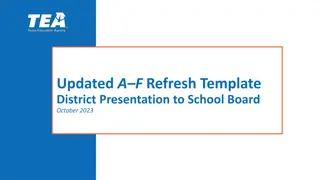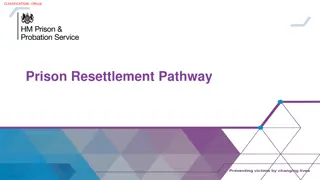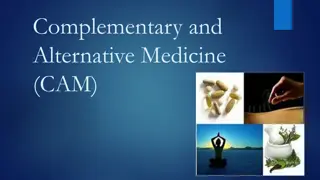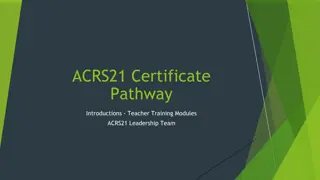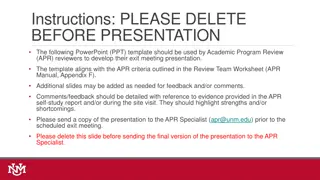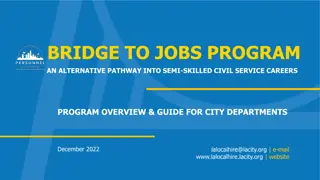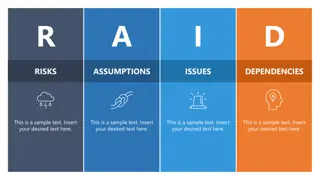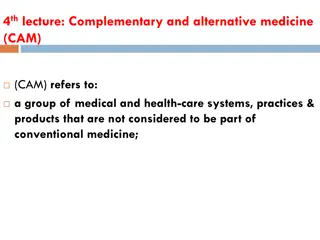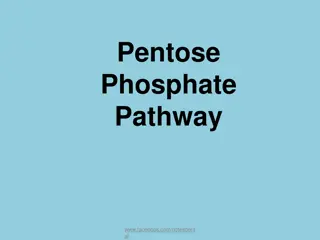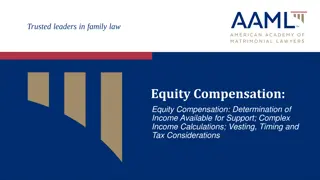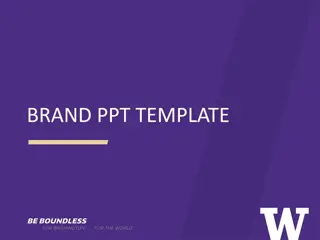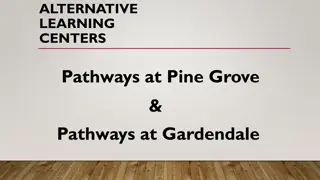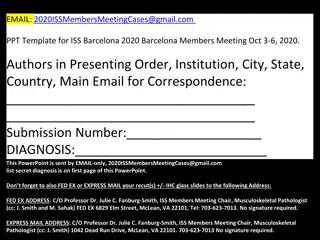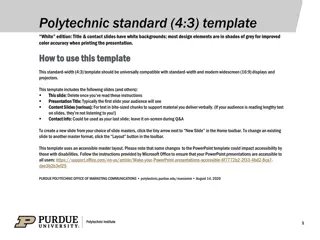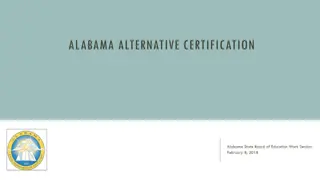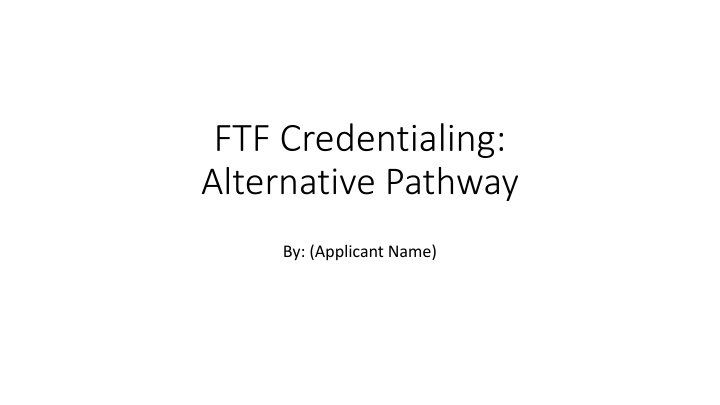
FTF Credentialing Alternative Pathway: Applicant's Journey Revealed
Explore the alternative pathway for FTF credentialing through the perspective of an applicant's experience. Follow guidelines for selecting a client, reviewing templates, and completing required fields. Gain insights into the practical functional assessment process and interviewing techniques for a comprehensive understanding of client characteristics and treatment history.
Download Presentation

Please find below an Image/Link to download the presentation.
The content on the website is provided AS IS for your information and personal use only. It may not be sold, licensed, or shared on other websites without obtaining consent from the author. If you encounter any issues during the download, it is possible that the publisher has removed the file from their server.
You are allowed to download the files provided on this website for personal or commercial use, subject to the condition that they are used lawfully. All files are the property of their respective owners.
The content on the website is provided AS IS for your information and personal use only. It may not be sold, licensed, or shared on other websites without obtaining consent from the author.
E N D
Presentation Transcript
FTF Credentialing: Alternative Pathway By: (Applicant Name)
Instructions 1. Select a client for whom you've implemented PFA-SBT. a. Guidelines for selecting a client: a. Ensure it's a client for whom you have consent to share video and data with FTF. FTF will provide you with a consent form. However, a copy of the signed consent collected through your practice or company will also suffice. b. Ensure you have evidence (video capture, data, graphs) from step 2 of the process (open-ended interview) to at least step 16 of the process (CAB 5). 2. Review template and complete the requested fields a. If there is other information relevant to treatment that you wish to share, please feel free to do so. However, we ask that, at minimum, you complete the requested fields. 3. Upload your completed PowerPoint, Completed PFA Workbook, Completed SBT Workbook with your application.
Background Information Client characteristics Age Diagnosis Language abilities
Background Information Educational/Treatment History Setting/learning environment (e.g., school, clinic, day program) Grade/instructional level ABA services, if any Additional services, if any
Background Information History of behaviors Severe problem behavior(s) Associated non-dangerous problem behavior(s)
Practical Functional Assessment (PFA) Open-ended interview: Interviewer and interviewee s Why were these people selected? What did you learn?
Practical Functional Assessment (PFA) Interview Informed Synthesized Contingency Analysis (IISCA): Describe the context of the IISCA in detail and provide a rationale (e.g., why was the particular implementer selected?). Implementer Location SR Materials SR Interactions Materials at table of high expectations EO Progression
Practical Functional Assessment (PFA) Interview Informed Synthesized Contingency Analysis (IISCA): Insert video Maximum length: 4 minutes Consider including a video that captures: Happy, Relaxed, and Engaged (HRE) behavior in the Synthesized Reinforcement (SR) SR interrupted by the Establishing Operation (EO) EO removed upon occurrence of problem behavior Access to SR context delivered and HRE achieved
Practical Functional Assessment (PFA) Interview Informed Synthesized Contingency Analysis (IISCA): Graph
Practical Functional Assessment (PFA) Interview Informed Synthesized Contingency Analysis (IISCA): Lessons learned
Skill-Based Treatment (SBT) Treatment setting Implementers Average practice hours per week Current step of treatment
Skill-Based Treatment (SBT) Insert graph
Skill-Based Treatment (SBT) Insert videos At least 3 videos of the SBT process at FCT, CAB1, and CAB5. 1 3 minutes each.
Skill-Based Treatment (SBT) Successes Describe
Skill-Based Treatment (SBT) Successes (optional) Insert videos (optional)
Skill-Based Treatment (SBT) Problems/barriers encountered Describe What were your recommendations at the time? Were they successful? Consider providing information on rationale for each decision made. Would you do anything differently?
Skill-Based Treatment (SBT) Problems/barriers encountered (optional) Insert videos (optional) Before recommendations After recommendations
Next Steps Enter information here
Conclusion/Summary Enter information here



